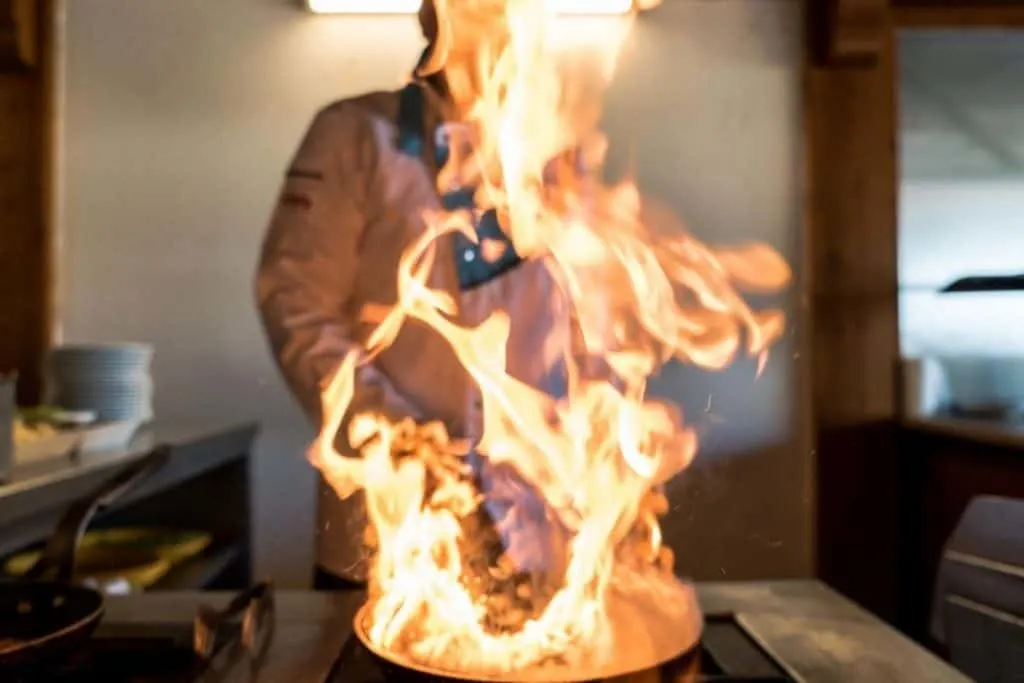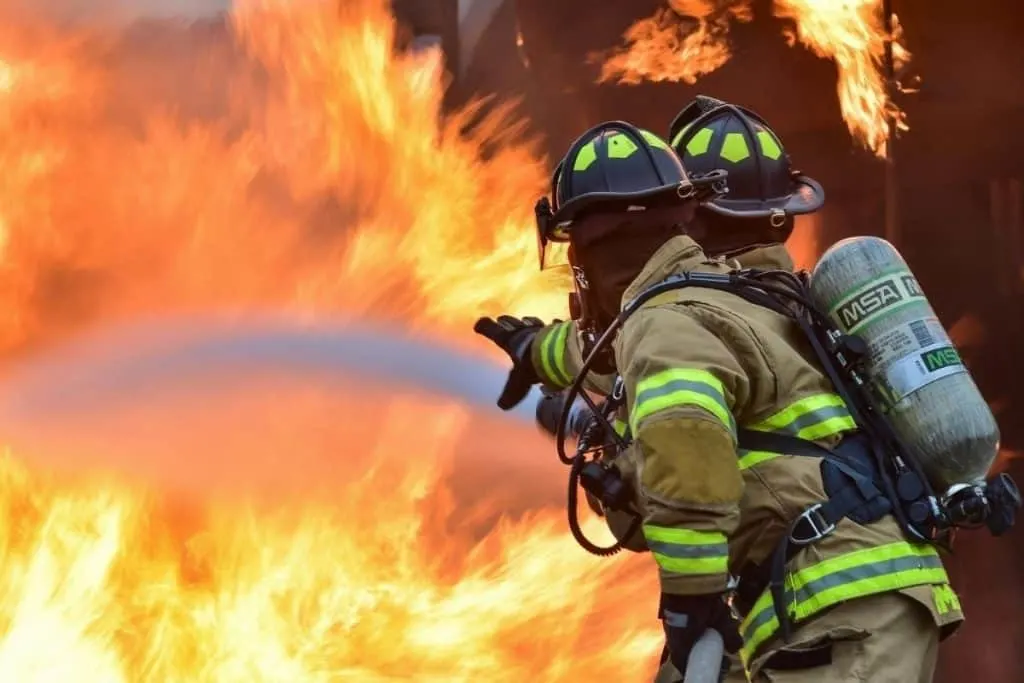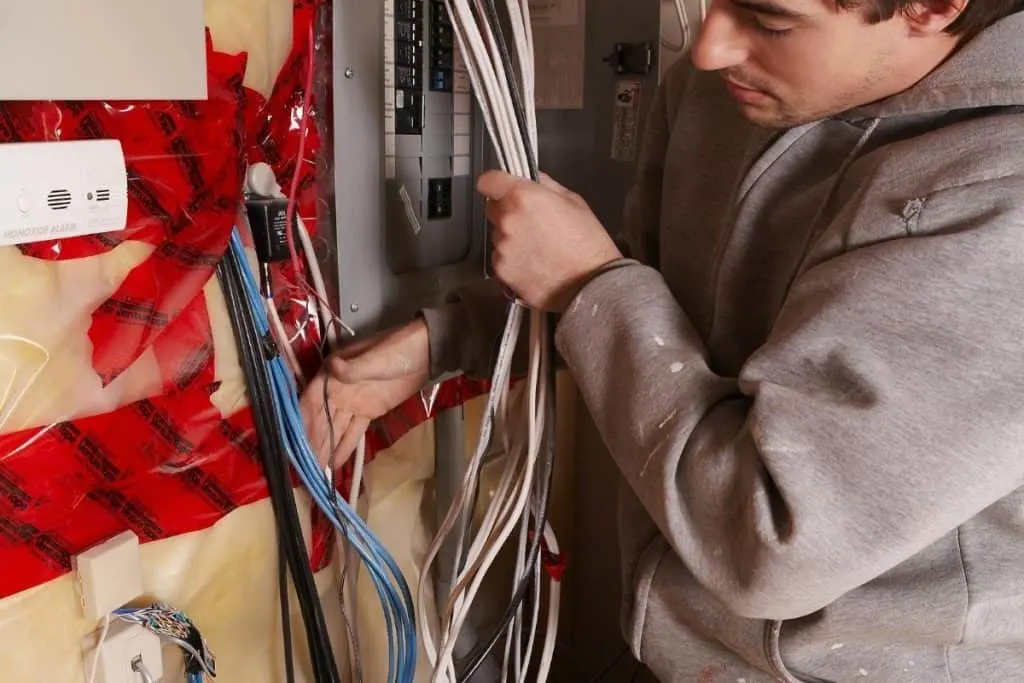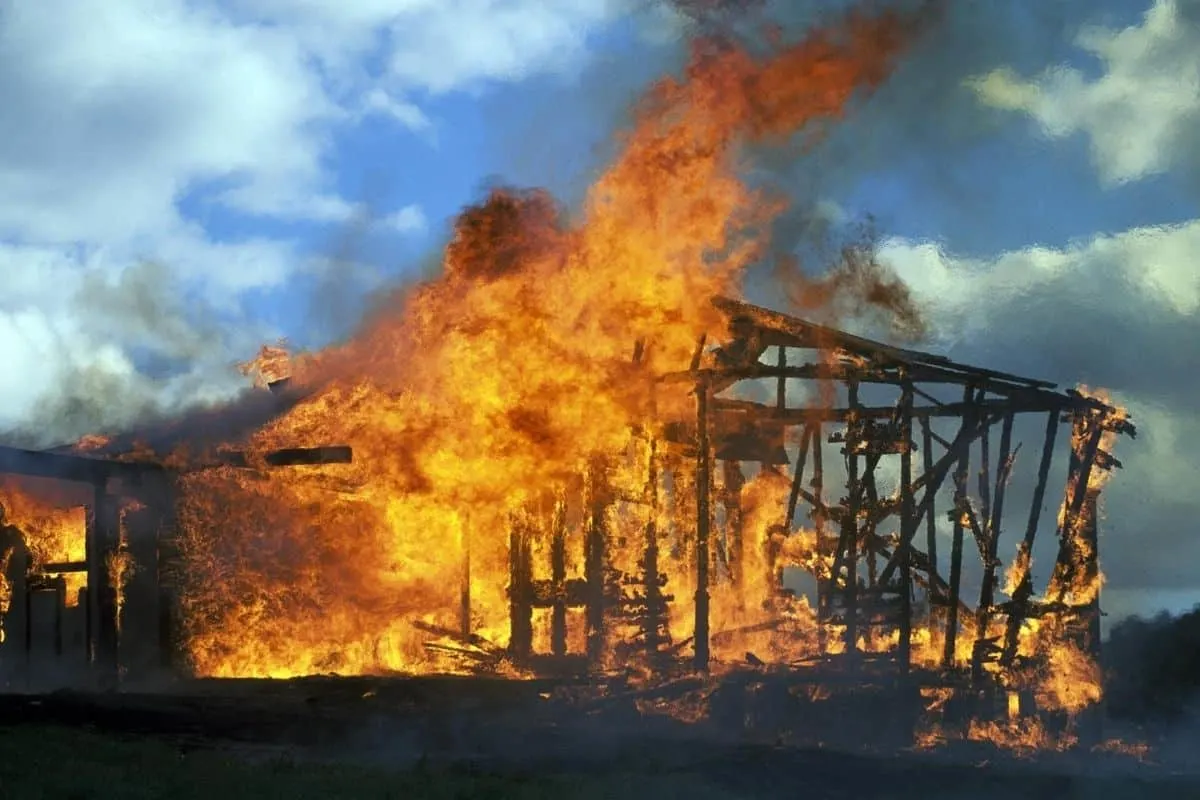House fires are a pretty common occurrence, and they are usually started by small, everyday items or routines that we don’t notice. So, what are these causes and how can you prevent them?
There are 12 common reasons why house fires start, so take a look at these ways and find out how to prevent them from causing a fire in your home.
#1 Cooking Accidents
It makes sense that when you are looking for how a fire started that you first look at the open flames that are used when cooking. Starting a fire with the flames on a stove is easy when you have a fire, oil, and grease all in the same area.
Many kitchen accidents happen when someone is cooking. Whether it is caused by someone dropping something onto the stove – like a kitchen towel – or oil and grease is spilled onto the stove, there are many ways that cooking can go wrong.
So, if you are thinking of ways to help prevent stuff like this from happening, you need to be careful. Taking special care when you are cooking to keep anything flammable away from the stove, carefully moving food items, and ensuring that you have full control over a dish before you pick it up and move it will all help to lower your chances of starting a fire.
If a Grease fire starts.. first try to starve the fire of oxygen by covering it with a lid or a flat cookie sheet then turn off the heat source. If the fire is small you can also try to smother the flames in baking soda or salt.
Do not pour water on a grease fire! you also want to be careful moving a grease fire from one area to another, it could cause flames to flare and spread the fire.

#2 Heating Systems
Where there is heat being created, there is a greater chance of a fire.
Many house fires are started every year because of heaters. When heaters are placed too close to other items like bedding, curtains, or towels, these items can catch on fire when they are heated up too much.
Also, placing articles of clothing over space heaters to dry or warm them can end in disaster. (Don’t do this!)
If you have a fireplace in your home, this can also be another heating system that can cause problems. From a fire getting too big to a spark hitting a blanket or piece of furniture, there are dozens of ways a fire can start here.
So, take precautions to not have anything placed too close to a fireplace or heater.
#3 Intentional Fires
Now, you might be thinking that we mean arson fires, and that can be the reason for the fire, but often that is not the case. An intentional fire could be a small fire that got out of control.
The person starting the fire might have done so without meaning for anything to happen, but an accident occurred and they lost control of the flames. This happens more often than people might think.
You could have been burning a candle that fell and caught something else on fire or lighting a match to use as light when the electricity goes out, but though the fire was intentional, it was not meant to harm.
This makes up a large portion of house fires every year. So, to help prevent this, you want to use fire sparingly and ensure that you are taking all the proper precautions when you do use it.

#4 Cigarettes
If you or someone in your home smokes cigarettes, then the chances of having a house fire are greater. If you smoke inside the home, then those chances increase even more.
Smoking on a front porch or balcony can be just as dangerous as smoking on your couch. Flicking ash onto a wooden surface can easily catch the table, furniture or nearby decor on fire.
Many of these house fires that are caused by cigarettes are started when the item is not put out correctly. Perhaps you even fall asleep with a lit cigarette in hand.
Cigarette fires tend to claim the most lives because they are often started in close proximity of people.
#5 The Dryer
You probably don’t think about laundry being dangerous, but when you have a machine that heats up, it can be. A dryer is the main cause of over 90% of all laundry-related fires, and it often comes down to the lint or dust catching on fire.
Not cleaning out lint traps with each load puts more effort into the dryer. This can cause it to overheat, making it hot enough inside the machine that the lint catches on fire.
However, a faulty wire or broken part can also be a common cause.
So, take care to check on your machine every so often to ensure that all the parts are working. Also, get in the habit of cleaning out lint all the time.
#6 Chemical Fires
When cleaning your home, washing your carpets, and mowing the lawn, you are using chemicals that could be flammable. Refilling the gas in your lawnmower can cause you to have bottles of oil in your garage and your kitchen cupboard is likely filled with multiple cleaners that could be flammable.
These are common items that can tend to start a fire with even a little spark. If you use certain cleaners around your fireplace, then the sparks or heat from it could cause an item to catch a flame.
They can also combust if disposed of inappropriately or mixed unknowingly with other items. For example, throwing an old battery into the garbage next to your child’s toy science kit. A rare but perfect storm.
The chemical will make the fire grow quickly, which can make it hard to stop. So, take a look at what you are using and pay attention to how you store or dispose of those items.
#7 Grills
A nice barbeque in the backyard is great when the summertime comes around, but not using it correctly or keeping it maintained could be an issue. The propane that powers the grill and the flame itself are both causes of concern.
Leaving it unattended for too long, not changing the propane tank, or allowing it to get too hot next to a flammable object could all start a fire. You could also experience a gas leak that starts a fire.
So, it is best to clean and inspect the barbeque before you use it to ensure that there is nothing that could go wrong. And, place it away from dry plants or grass.

#8 Overloaded Power Boards
With so many things running on electricity these days, it can be easy to overload a power board. With plugs that allow you to add to the number of plug-ins you have in your home, this can be a serious issue.
Shorting out the power board can cause sparks, which can catch on something around it. This is pretty common with so many devices needing charging in the same home.
So, sticking to only charging a few devices at once is a good thing to do. Also, if you need the extra plugs, then get an extension cord and multiple plug end with overboard protection.
#9 Holiday Lights
During Christmas time, many families decorate their homes with colorful string lights. They also put them on live Christmas trees, which can be a major problem.
The trees are drying out as the year goes on, so in the weeks leading up to the holiday, the tree is getting drier and drier. If lights get too hot, then this could set the tree on fire.
So, double-check your lights to ensure there are no faulty wires or anything that would cause sparks. Also, don’t leave your lights on unattended for long stretches to avoid a house fire around the holidays.
#10 Faulty Wiring
Electricity is great, but it also comes with risks. To power your home, you have lots of wires going to dozens of outlets, which leaves a lot of room for issues.
Having a faulty wire in your home could cause an outlet to short out, which could send sparks flying into the surrounding area.
If a piece of furniture or décor is there, this can catch on fire and be very dangerous. However, as they often start unexpectedly, there is sadly not much you can do about this one.
If you are updating any wires in your home be sure to hire a licensed electrician. They can help spot potential issues and correct any known issues. This is not the area to skimp on labor costs.
#11 Faulty Appliances
In the same way that faulty wiring in your house is dangerous, it also is when inside an appliance. Having bad or faulty wiring could cause a fire when you plug it into an outlet.
This can spread very quickly and happen when you don’t expect it.
So, to avoid this, make sure that you replace old appliances when it is necessary. Also, buy well-made options.
#12 Charging Appliances
With lots of devices to charge, there are usually a few at once that are plugged in. This might seem like a small issue, but they create a large amount of heat.
If you place then on a surface that is flammable, like on loose paper or on your bed sheets, then you could be risking a fire starting.
So, be careful where you place these chargers and the devices, and you can avoid a major house fire.
Final Words
If you want to keep you and your home safe from fire, knowing how house fires start is one way to stay proactive.
Take the precautions necessary and you can keep yourself, your family, and your entire home from getting burned.
Have a family meeting and discuss what to do in the event of a fire. While you cannot know when or if a fire will start, you can reduce the risk to your family by having an evacuation plan.


